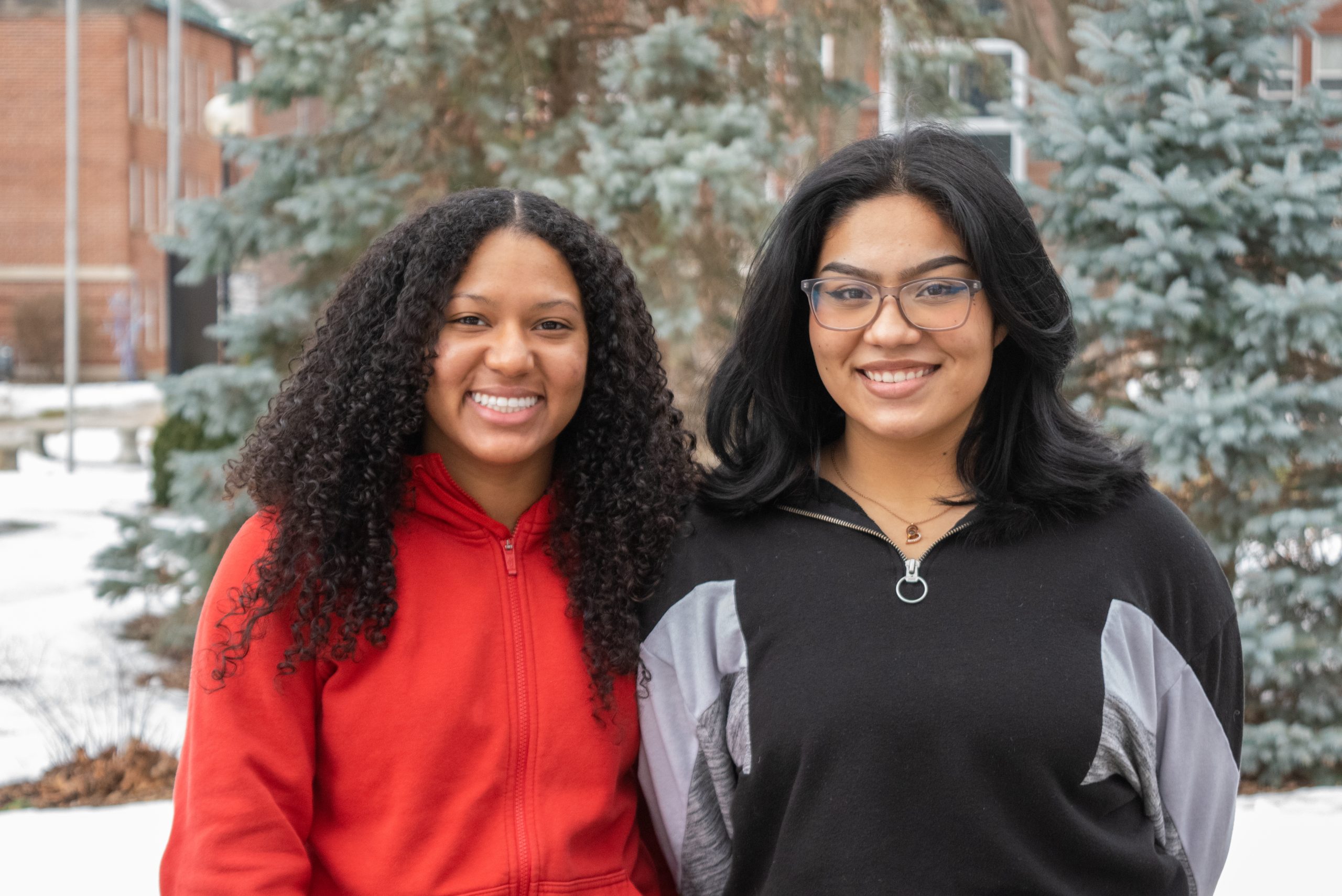Think about one of your favorite teachers. Chances are, that teacher looks like you.
Especially for students of color, having teachers that are as diverse as the students is a key part of feeling welcome in the classroom. Teachers of color have often been underrepresented, especially in Elkhart County, and Goshen College is working to change that — the Teach Elkhart County (Teach E.C.) program at GC supports a few of those inspired students as they become educators.Elisa Zwier, an assistant professor of education and the director of Teach E.C., explained that while the program may expand and adjust its target demographic, currently, there are specific requirements for students who apply to the program.
“The focus is on students from Elkhart County who identify as BIPOC [Black, Indigenous, and people of color], who want to become teachers in any branch of education, and envision themselves staying to teach in the area for a minimum of three years,” said Zwier.
When students are accepted to the program, they become a part of the small community that makes up Teach E.C. This model allows students to have a close, supportive environment.
“Students come in through a cohort model,” she explained. “We work intensively with five to seven students each year and meet once a week for an hour and provide other [support] services.”
Teach E.C. is a relatively new program at GC, starting only three years ago, but is firmly moving towards its goals within the community.
According to Zwier, along with helping bring more diverse teachers into schools, one of the program’s goals is to give back to the program after students move into the field. “The idea is to provide continued support, and hopefully after teachers have been teaching for about three years, they’ll feel inspired to become mentors of the future educators themselves.”
These programs, often called “grown your own” programs, can sometimes be hard to find. This is because of how specific they are to the communities that they serve.
Zwier explained that Teach E.C. is “a part of a bigger movement around the country.”
These programs are crucial for helping students of color in communities everywhere feel represented when they have teachers with whom they relate.
“There’s lots of research that shows there are academic benefits, lower dropout rates, and social or emotional benefits for students,” said Zwier.
“We want to be culturally responsive and community-rooted,” Zwier said. “[These programs] look for ‘where is the best potential?’ and ‘how can we raise the next generation of people who want to make a difference in the lives of children and youth?’”
Isis Espinoza, a sophomore secondary education and Teaching English to Speakers of Other Languages (TESOL) major, is passionate about being a teacher that students could learn from and relate to.
“There are a lot of cultural instances that some teachers won’t understand, [as well as] language and home-life things too,” she said. “I love speaking my native language of Spanish, so being able to have a teacher who can also talk to me in that language makes it easier for me to connect with them.”
Espinoza joined the Teach E.C. program in the spring of 2021 after being approached by Zwier and learning more about the program’s diversity mission.
Jayden Hernandez, a first-year majoring in elementary education focusing on special education, is new to the program. One thing she appreciates is being able to relate to the school experiences of the other members of her cohort.
“A nice thing about the Teach E.C. program is that everybody shares the experiences, and it’s nice to know I’m not the only one,” said Hernandez.
While mainly attending private schools growing up, Hernandez could see the need for more teachers of color in the school systems.
“I want to be a positive light, improve students’ experiences in schools, and create a safe space for students,” said Hernandez.




